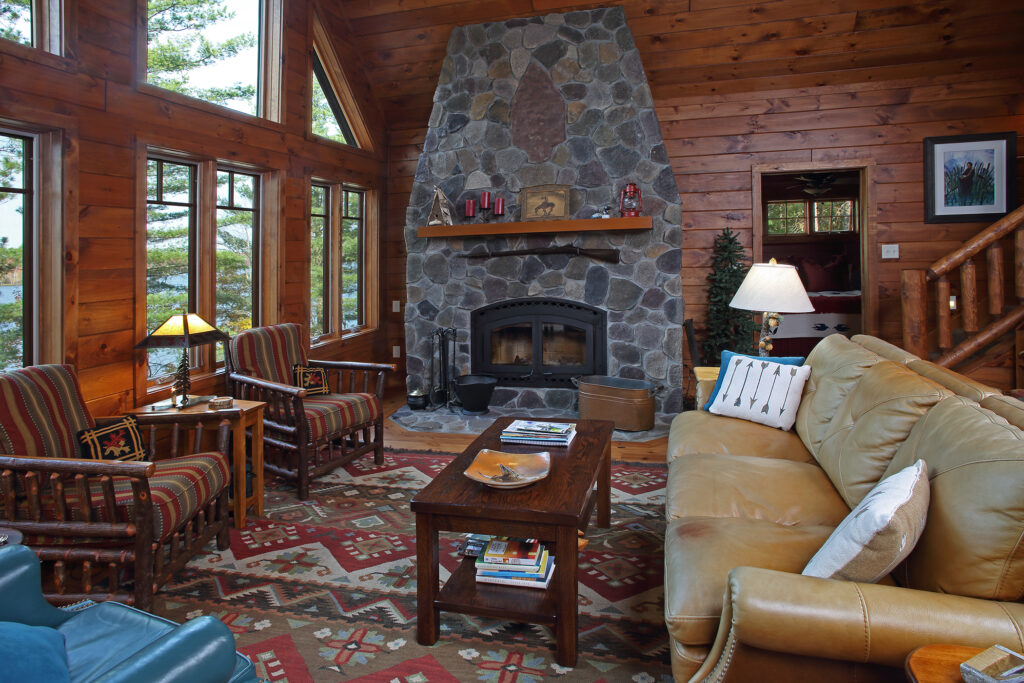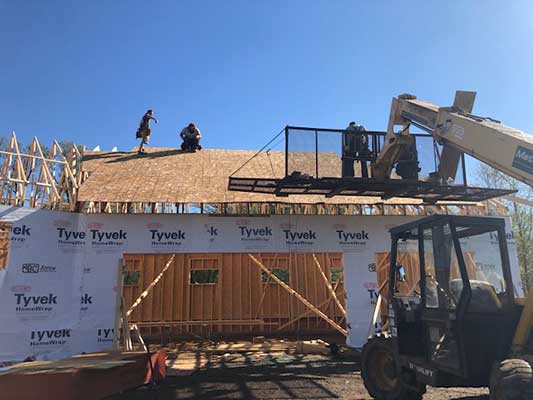
Embarking on the journey of constructing a new cabin or lake home is an exciting yet complex endeavor. But before delving into this project, several key considerations must be taken into account to ensure a successful and fulfilling outcome. Here is a list of ten things to consider before building a cabin or lake home.
1. Location is Paramount.
Consider proximity to water, views, accessibility, and distances to local conveniences, such as restaurants and recreation opportunities. Consider drive time to and from the lake as well as local building and zoning regulations. Assess the terrain, sun exposure, and prevailing winds for ideal building site and and try to envision the orientation of your new cabin.
2. Define your Goals.
Are you building a seasonal retreat, a rental property, or a year-round residence? Think about how you will be using the space. It is important to determine the size of the cabin, and if you want a garage. Other things to consider are the number of bedrooms, baths, as well as amenities, and whether you want a rustic or modern feel.
3. Budget Wisely.
Factor in all costs, including land purchase, site improvements, construction, permits, utilities, landscaping, and furnishing. Allocate a contingency fund for unforeseen expenses and to give yourself the freedom to make changes during constriction. This will help you to avoid financial stress during the project.
4. Engage Professionals.
Hire a design/build contractor or an architect to help create a tailored plan that meets your needs and complies with local building codes. Consult with builders, contractors, and engineers to ensure a smooth construction process.
5. Choose the Right Materials.

Consider durability, maintenance requirements, eco-friendliness, and aesthetic appeal when selecting building materials. The weather in the Midwest can be quite tumultuous, so chose quality products that will withstand and provide long-term value.
6. Prioritize Sustainability.
There are many ways to make your cabin or lake home sustainable. Incorporate energy-efficient features, such as solar panels, high-grade insulation, and thermal windows, to reduce your environmental footprint and long-term operating costs. Utilize local resources for a greener build.
7. Plan for Functionality.
You will want a builder who can design the layout to maximize space utilization and flow. Consider storage needs, outdoor living spaces, parking, and future expansion possibilities to enhance the usability and comfort of your cabin.
8. Think about Maintenance.
Choose materials that are low-maintenance and durable to minimize upkeep efforts. Invest in quality finishes and construction techniques that will withstand wear and tear over time.Cabins are often exposed to harsher elements. Most are surrounded by trees (pine) and are in the northern areas where the elements are a bit more taxing.
9. Water and Utilities.
Evaluate access to water sources, sewage systems, electricity, internet connectivity, and other essential services. Ensure proper infrastructure is in place or plan for off-grid solutions if necessary.
10. Local Regulations.
Familiarize yourself with local zoning laws, building permits, environmental restrictions, lake setbacks and community covenants that may impact your building plans. Adhere to all regulations to avoid delays and legal issues.
In conclusion, building a new cabin is a significant undertaking that requires thorough planning, attention to detail, and a clear vision of your desired outcome. By considering these key factors before starting construction, you can set the foundation for a successful and enjoyable cabin building experience that will result in a cherished retreat for years to come. Whether you are just starting to think about building a new cabin or your are ready to take the first step, a reputable local contractor can be of great help, saving you valuable time and avoiding mistakes.
Give Tice Construction a call. We can help with which stage you are in at (715) 635-4664. Check out our website to get ideas for the style of cabon you wish to build. https://ticeconstruction.com/
